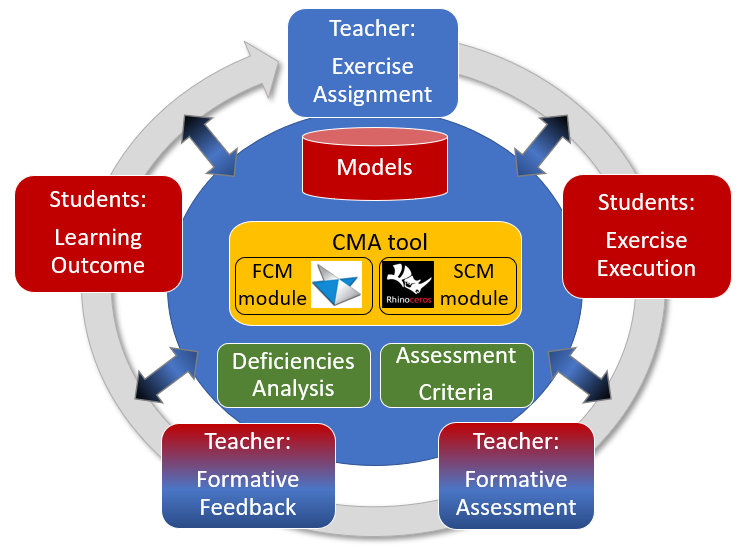With a steadily increasing use of CAD systems within digital prototypes in product design and development, the capacity to create viable geometric models that can be used in various computer-aided engineering processes is becoming an indispensable necessity. However, with the current trend of commercial CAD systems increasingly to promote hybrid geometric modeling environments, this requirement poses a new challenge for education, as it requires a teaching strategy that goes beyond the sum of subject learning in surface modeling and solid modeling. The aim of the research is to investigate a novel teaching approach, which integrates negative knowledge as one crucial element in combination with traditional teaching methods to support competency development that reaches beyond the acquisition of basic modeling skills and domain knowledge.

–
